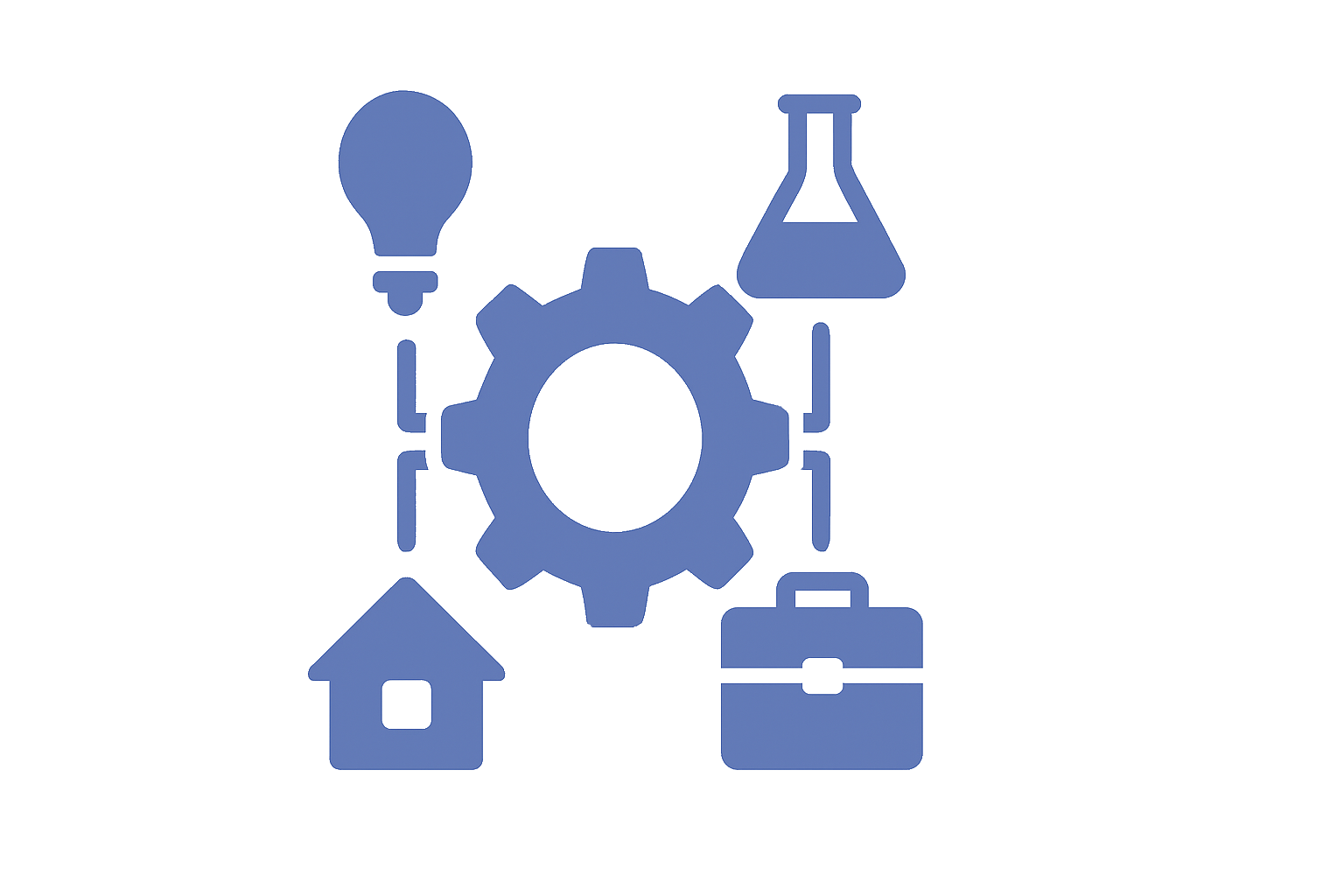Experience | Expertise

Experience | Expertise
You Are Going To Make So Many Mistakes Todd Elkins Devin MillerThe Inventive JourneyPodcast for Entrepreneurs 8/17/2020 Or listen using the plugin below: <iframe height="200px"...
Expert Advice How to Podcast & Generate Business Alex Sanfilippo Devin Miller The Inventive Journey - Expert Advice Podcast for Entrepreneurs 9/10/2020 Or listen using...
It's A Marathon, Not A Sprint Christopher Cardenas Devin Miller The Inventive Journey Podcast for Entrepreneurs 2/3/2021 It's A Marathon, Not A Sprint It's a...
Know What You Can & Can't Do Tom Milligan Devin Miller The Inventive Journey Podcast for Entrepreneurs 11/11/2020 Know What You Can & Can't Do...
Take Responsibility Chris MurphyDevin MillerThe Inventive Journey 6/4/2020 Or listen using the plugin below: <iframe height="200px" width="100%" frameborder="no" scrolling="no" seamless src="https://player.simplecast.com/fce9d45a-c181-404f-a6b7-3cd696b51849?dark=false"></iframe> Take Responsibility "Take responsibility...
The Inventive JourneyEpisode #502Building Success: Surrounding Yourself with the Bestw/ HR Huntsman What This Episode Talks About: How To Manage Business & Self One valuable piece of advice...
The Inventive JourneyEpisode #501Unleashing Your Unique Value in Startupsw/ Matthew Pincus What This Episode Talks About: How To Manage Business & Self In order to thrive, it's...
The Inventive JourneyEpisode #500Networking, Experience, Successw/ Joshua Karrasch What This Episode Talks About: How To Manage Business & Self Acquire experience through any means possible. Experience brings...
The Inventive JourneyEpisode #499Mentorship: Your Path to Entrepreneurial Successw/ Tara Brown What This Episode Talks About: How To Manage Business & Self Seek out a mentor who...
The Inventive GrowthEpisode #4Rediscovering My Why: Journey of Purpose & Familyw/ Colby Tunick What This Episode Talks About: How To Manage Business & Self I always make...
The Inventive JourneyEpisode #498Starting a Business: Navigating Ups and Downsw/ Gregory Mcbeth What This Episode Talks About: How To Manage Business & Self Starting a business requires...
The Inventive JourneyEpisode #497Learning from Others When Starting Something Neww/ Julia Goldstein What This Episode Talks About: How To Manage Business & Self When starting something new,...
The Inventive JourneyEpisode #496Lessons in Letting Go: Avoid Forced Opportunitiesw/ Samm Smeltzer What This Episode Talks About: How To Manage Business & Self Don't force things. Pursue...
The Inventive GrowthEpisode #3Embracing Delegation for Long-Term Successw/ Daniel Felt What This Episode Talks About: How To Manage Business & Self Personally, I'm only 33, so I'm...
The Inventive JourneyEpisode #495Essential Advisors for Growing Your Businessw/ Heather H Bennett What This Episode Talks About: How To Manage Business & Self It's essential to have...
The Inventive JourneyEpisode #494Importance of Customer Reach in Business Successw/ David Schneider What This Episode Talks About: How To Manage Business & Self To succeed in business,...
The Inventive ExpertEpisode #106Personalized Education: AI and Data Analysisw/ Mike Liu What This Episode Talks About: How To Manage Business & Self We can personalize education using...
The Inventive JourneyEpisode #493Slow and Small: The Key to Starting Strongw/ Joshua Prieto What This Episode Talks About: How To Manage Business & Self My advice would...
The Inventive JourneyEpisode #492Starting a Business: Isolation and Opportunityw/ Spencer Loveless What This Episode Talks About: How To Manage Business & Self Starting a business is a...
The Inventive JourneyEpisode #491Value over Attachmentw/ Damon Pistulka What This Episode Talks About: How To Manage Business & Self It's important not to get overly attached to...
The Inventive JourneyEpisode #490Building a Lasting Reputation through Quality Workw/ Mark Siebert What This Episode Talks About: How To Manage Business & Self If I had to...
The Inventive JourneyEpisode #489Embracing Courage and Confidence for Successw/ Matthew Salter What This Episode Talks About: How To Manage Business & Self Based on my own experience,...
The Inventive JourneyEpisode #488The Importance of Resilience and Teamwork for Successw/ Irina Fine What This Episode Talks About: How To Manage Business & Self In my view,...
The Inventive ExpertEpisode #105Profitability: Key to Advertising Successw/ Brandon Cobb What This Episode Talks About: How To Manage Business & Self Every company has a different target...
The Inventive JourneyEpisode #487The Power of Building Relationships for Successw/ James Grant What This Episode Talks About: How To Manage Business & Self In today's world, building...
The Inventive JourneyEpisode #486Success in Virtual Events: Finding Your Nichew/ Steven Pemberton What This Episode Talks About: How To Manage Business & Self Consider identifying the individuals...
The Inventive JourneyEpisode #485Starting a Business: Partner or Go Solo?w/ Gerald Finken What This Episode Talks About: How To Manage Business & Self When starting a business,...
The Inventive JourneyEpisode #484Starting Small for Big Business Successw/ Anatolii Landyshev What This Episode Talks About: How To Manage Business & Self I would say that dreaming...
The Inventive JourneyEpisode #483The Power of Networking for Successw/ David Winkelman What This Episode Talks About: How To Manage Business & Self Developing a network of relationships...
The Inventive JourneyEpisode #482Listening To Clients Is Crucialw/ Jeremy Kanne What This Episode Talks About: How To Manage Business & Self Listening to clients is crucial, so...




























